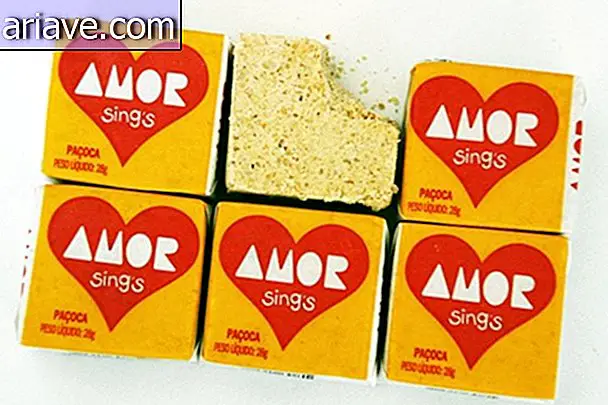Why do people lose track when they get drunk?
Imagine the scenario: your friends call you for a happy hour quickly, you come to that bar and find that just that day, everything you ask comes in double. Chat goes, chat comes, suddenly there are six empty glasses of draft beer right there in front of you. The laughter gets looser, you don't think twice before you speak (you may not think at all), and suddenly it's just the vaguely embarrassing reminder that something beyond your account has just happened.
The other day, your friends decide to open the game and tell you that you have lost your mind, made up your face, mixed vodka with beer and wine, made friends with strangers, went into the wrong bathroom, and finally lost your mind. That's ugly, huh! And then you make that old promise that you'll never drink again in your life, and as you take several headache pills, you wonder why the drink does that to humans.
Alcohol comes in and truth comes out

It is a fact that we change when we drink alcohol, especially if we do it in excess. The point is that even though this drug is thought to be a kind of magical disinhibitor, it is still considered a depressant of our central nervous system. Of course the lack of inhibition may happen, but after that comes the good old hangover, which is nothing more than the side effects of drunkenness.
Some recent studies have suggested that a person's reaction to alcohol abuse has to do with the cultural and social issues that are part of his or her life. Theoretically, this makes it easier to understand depressed, sleepy, expansive, jokey drunks, and so on.
This relationship between social and cultural issues can be easily understood from the moment of self-analysis: those who have drunk on a sad day after the breakup of a relationship, for example, know that drunkenness possibly ends in depression; On the other hand, when the idea is to celebrate a birthday or a promotion at work, the drunk is unlikely to be the depressed type.

Alcohol is sometimes also the opportunity that the person expected to let go, create the courage to say something or take an initiative. In this sense, there is even the question of placebo, as a 2003 survey suggested, in which participants received tonic water but believed they were drinking vodka. In a matter of minutes, they began to act as if they were drunk.
Still, each person has a different drinking experience, leading us to conclude that each person's reaction depends on their mood at the time of drinking. Here are some possible pictures for you when it comes to putting your foot in the jackfruit.
Alcohol myopia

The last decades of studies on human behavior suggest the model of alcohol myopia, which analyzes the phenomenon that makes us increasingly short-sighted as we drink. This is because alcohol impairs our peripheral vision - what we see “from the corner of our eye” - and focuses more on what lies ahead. These two visual changes can help us determine the effects of alcohol on different situations:
- The Inflated Ego: It is common for drunk people to feel better about themselves. This may be related to misrepresentation, which does not allow us to focus on those defects that bother us most. This is one of the reasons that make alcohol a highly addictive substance.
- Real worries can get worse: It's that thing: There is nothing so bad that it can't get worse, and in the case of a bad day at work or college, for example, trying to settle with a drink can make the situation even worse. more complicated. The explanation here is the loss of peripheral vision, after all, if what we perceive around us can distract us, taking that "effect" will focus us only on what is wrong.

- The pleasure of the moment: The question of vision focused on what is ahead of us can make the moment of drunkenness extremely pleasurable, especially when we have reactions that we consider positive. Again, this also explains the high rates of alcohol dependence. There are other activities that can be as enjoyable as a bottle of wine.
- Performance: Alcohol can improve our performance on some tasks, especially as we put our insecurities aside. Care must be taken in this regard, as dealing with these insecurities is a task that could be best accomplished while sober. In terms of public presentations, for example, it has been proven that alcohol increases our nervousness, not the other way around.
What kind of drunk are you?

Oddly enough, some scientists believe it is possible to predict the effects of alcohol on a person's body as soon as they start drinking. As the drug is disinhibiting and makes us impulsive, relaxed and less selective, there is research that suggests that alcohol has different actions according to the personality of each individual and even according to genetic specifications.
It's been proven that alcohol makes us have qualities and desires that we once had when sober - so it's not a matter of magic, it's just a door that opens more easily. Because of this, it is possible to predict how a person will be when drunk based on his sober personality.
- The Aggressive: The drunk bully is usually male and already has a history of anger and aggression when sober. If the idea is to avoid confusion, better not call that warm and impulsive friend for happy hour.
- The calm: Behavioral studies have already proven that calm people in their routines will rarely become aggressive after consuming alcohol. They are able to control themselves and do not drink much by calculating the consequences of their decisions.
- The Stressful: People with problems at work, in love, or with finances should avoid drinking. They will be boring drunks and even more stressed.

- The Kamikaze: In addition to personality, genetic issues also interfere with the way we get drunk. People with alcoholism in the family often need to consume more alcohol to begin to feel the effects. What's more, these wallet drinkers are more susceptible to the euphoric effects of alcohol, which is dangerous and can lead to addiction.
- The tequileiro: It's that person who likes to drink but doesn't do that very often. Usually a dose of tequila is enough to initiate a feeling of sedation. These are the people who hardly drink, but when they decide to drink, they need help getting into the cab. And a bucket by the bed.
***
So, did you recognize yourself or did you recognize anyone in the descriptions above? When in doubt, it is best to drink in moderation and avoid headaches for yourself and others.











